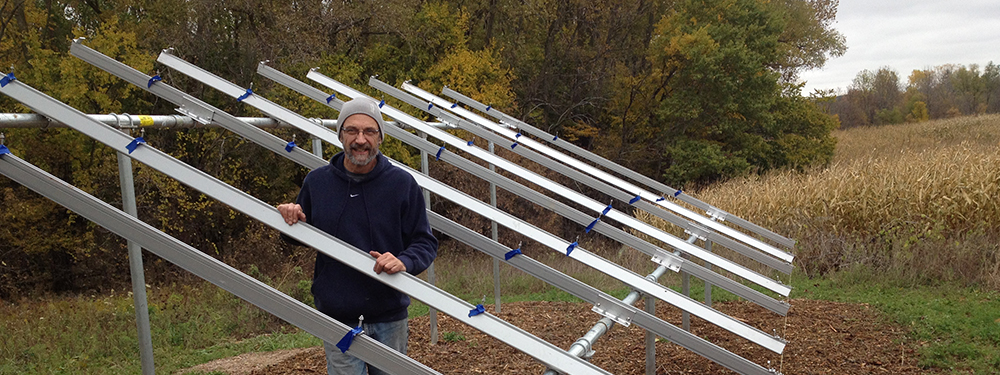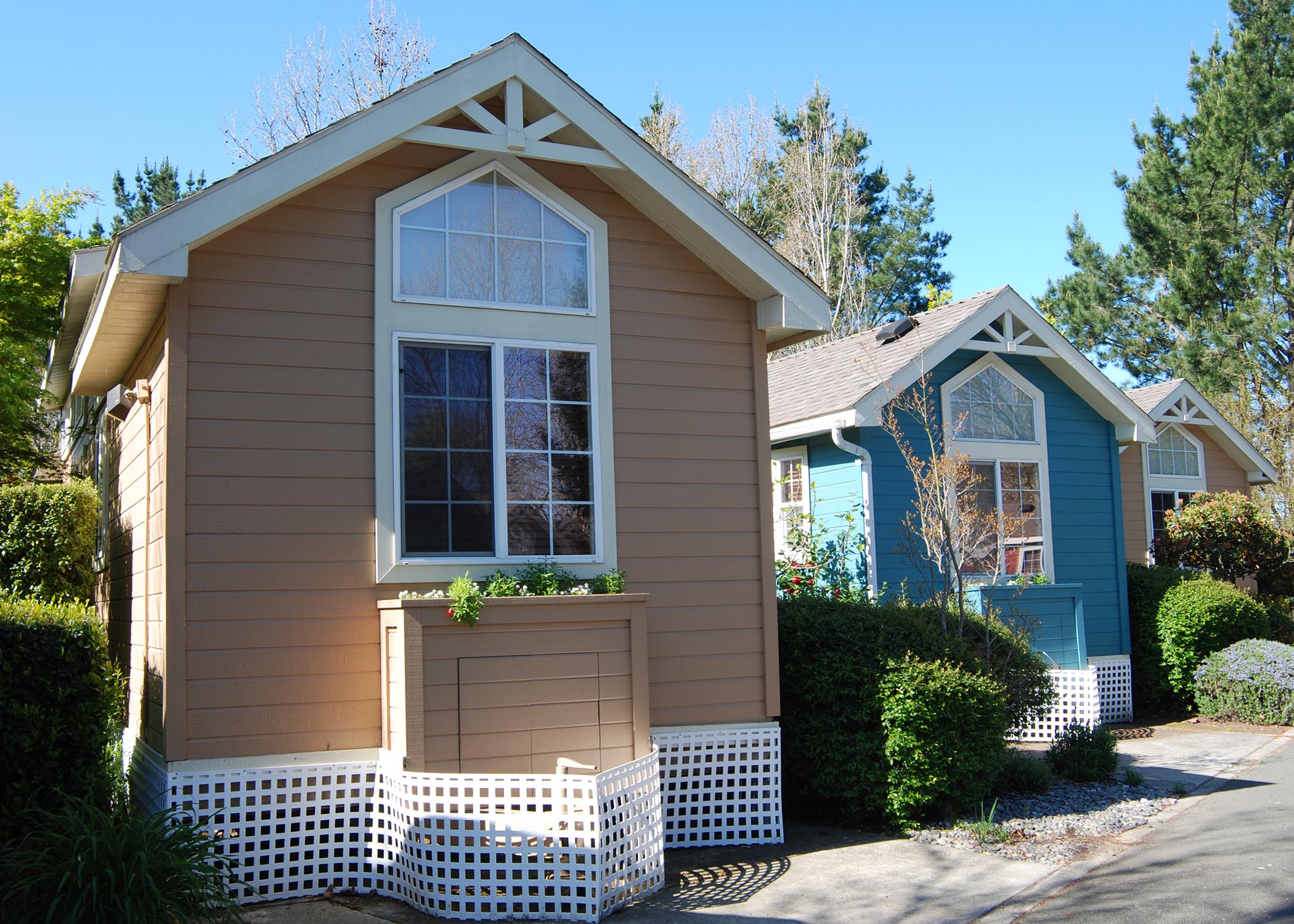When creating your solar power system, one of the first big considerations is off-grid vs. on-grid solar.
This determines whether you plan to remain tied to the grid or want to fully break free of utilities.
So which option is right for your farm or ranch?
How to Choose Between Off-Grid vs. On-Grid Solar
We won’t fool you, though.
Solar is a significant investment.
Therefore, it’s essential to make a practical decision based on your needs and uses.
You also must plan for the future as your farm or ranch expands or external factors change.
1. Remoteness
The further away you are from utilities, the less feasible grid-tied installations become.
Energy companies sometimes charge tens of thousands of dollars to connect power lines along the street.
Imagine attempting this if you live a half-mile or several miles away.
In this case, an off-grid solar installation makes the most sense and can save you thousands of dollars.
2. Space Availability
When debating off-grid vs. on-grid solar, note that the roofs of buildings may not provide enough solar panel space for off-grid living.
If you have a small farm or minimal land left for solar panel placement, off-grid systems might not be feasible.
Farms with large plots of unused land also need to consider tree growth.
Cutting down trees to place solar panels can negatively impact long-term sustainability goals.
3. Power Consumption
The more power your farm uses, the more difficult it may be to give up reliance on the grid and fossil fuels.
For example, powerful machines drawing 1,000 watts or more will quickly drain batteries on cloudy days or after dark.
The best way to tackle this is to find lower-consumption alternatives.
Generators can also supplement off-grid usage.
4. Compatibility
When exploring off-grid vs. on-grid solar, determine how many of your power systems you can replace with solar energy.
Some of the first to consider include freezers, water pumps, water heaters, sprinklers, and lights.
One of the biggest concerns in southern climates is powering AC units.
Farmers can get around this by installing swamp coolers in dryer climates or considering geothermal heating and cooling wherever possible.
5. Incentives
Though solar costs are rapidly falling, farms should still take advantage of any incentives for which they might be eligible.
The federal government provides tax benefits for solar installations.
Some states and local governments provide additional benefits.
These make off-grid installations more affordable.
However, consider this on-grid arrangement if your local energy company has beneficial partnerships for buying your solar.
6. Return on Investment
Both options provide an excellent return on investment when it comes to off-grid vs. on-grid solar.
What makes the difference is how long you can wait to reap the benefits.
You will break even faster with an on-grid system because the initial investment is lower.
However, you’re missing out on achieving higher returns over the long term.
7. Budget
Ultimately, the money you have available to fund your solar system may determine where you fall in the off-grid vs. on-grid solar debate.
The batteries required for an entirely off-grid installation can be expensive.
Keep in mind that you can expand your system over time to improve self-reliance and wean yourself off the grid.
Here are some ways you can source more capital:
- Lease a portion of land to local energy companies and ask for a portion of power production or use the proceeds to fund your own installation
- Crowdfund the installation costs and share production with neighbors
- Refinance the mortgage on your farm or ranch and cash out some equity
- Get a home improvement loan, solar loan, or business loan
Why Consider Solar
Farmers and ranchers across America are making the switch to clean energy to reduce energy costs and please customers.
If you’re still on the fence, consider these perks before making a final decision.
1. Reduced Upfront Cost
Years ago, it almost cost a fortune to purchase solar components regardless of your off-grid vs. on-grid solar choice.
In more recent years, costs and complexity declined so much that homeowners and full-time travelers now purchase and install units on their own.
Lower initial costs mean you break even and reap awards even faster.
2. Energy Cost Savings
The agricultural sector consumes significant power to feed and power America.
In 2014 alone, the sector consumed 1,714 trillion BTU of energy.
Not surprisingly, energy costs accounted for up to 16% of total budgets on farms.
Considering the hundreds of sectors that create the US economy, this is a substantial figure.
Switching to solar can significantly reduce costs.
3. Product Diversification
Farms across the country have diversified their product mixes to include solar and other forms of green energy.
As it becomes more difficult to sustain by farming alone, farmers are earning a second stream of income through solar generation to retire comfortably.
This is another reason leasing land to energy companies can prove profitable.
4. Sustainable Living
Regardless of your off-grid vs. on-grid solar preference, farmers are becoming increasingly concerned about how climate change and environmental issues affect crops and livestock.
While solar panels won’t undo the damage already caused, they can slow the rate so that future generations can enjoy the Earth’s resources.
5. Consumer Preference
Even if green living is not high on your priority lists, modern-day consumers increasingly support businesses focused on environmental preservation.
Going organic or free-range are common ways farmers seek to attract these markets.
However, making even 80% green energy products is another great option.
Hire a Professional to Tackle Off-Grid vs. On-Grid Solar
Working with professionals can help you determine whether off-grid vs. on-grid solar is right for you.
We at Unbound Solar® specialize in helping homeowners, farmers, and ranchers discover independence through solar.
Get a quote from our team today!




